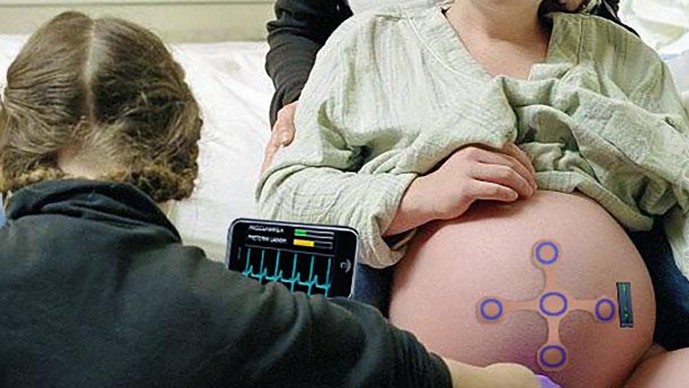Wearables and Technology for Maternal, Neonatal and Child Health Behavior Change (Round 19)

Roadblocks
Maternal, newborn and child health has seen significant yet inconsistent improvements over the past 15 years. In order to meet the Sustainable Development Goals set for 2030, mortality reduction must accelerate. We are challenged to lower annual global neonatal deaths from 2.7 million to 1.2 million, and annual global maternal deaths from 303,000 to 97,000. Achieving these targets will require scaling up proven interventions such as:
Newborns
- kangaroo mother care (KMC)
- clean cord care
- neonatal resuscitation
- diagnosis and treatment of infection
Mothers
- prophylactic uterotonics
- antenatal care
- prevention and treatment of hypertensive disorders for mothers.
Existing tools may be inadequate to 1) facilitate behavior change among target populations, and 2) improve data collection for research in low-resource settings. The barriers for behavior change are numerous and span motivation, ability (skills and knowledge), and environment. For example, some barriers to KMC practice include women’s discomfort in performing typical household tasks while their fragile newborn is on their chest, limited knowledge of the benefits of KMC, and lack of social support.
Research data is often limited by burden of collection resulting in incomplete or inaccurate data. Data is often easiest to collect in facilities, which means that mothers and newborns that don’t reach facilities are left out and data may not reflect population realities. We are excited to explore the role that wearables and sensors can play in overcoming these barriers.
What we are looking for:
We seek wearable and/or sensor technologies that will improve the health of mothers and newborns by 1) increasing uptake of healthy behaviors and/or 2) facilitating research on maternal and neonatal interventions in low-resource settings.
These new wearables and sensors should:
- Have a clear theory of change for catalyzing healthy maternal/newborn behaviors
- Facilitate data collection for maternal-newborn health research with consideration of data privacy mechanisms
- Be feasible within limited infrastructure environments (e.g. electricity, internet access, etc.)
- Consider projections and trends in technology in low-income settings (e.g. level of mobile phone technology)
- Consider the societal norms of target communities in low income countries
- Consider the comfort and safety of the proposed user
- Consider the sustainability and maintenance of the technology
- Be easy to use
- Incorporate a human-centered design approach. For more on human-centered design, please refer to this resource and this website.
We seek proposals that:
- Are rooted in authentic understanding of and experience in local contexts
- Bridge the gaps between user need and demand with technology
- Are forward-thinking, leveraging upcoming and future technological trends
What we will consider for funding:
- Tracker of temperature and position that can stimulate KMC practice
- Sensor for newborn that measures heart rate, respiratory rate, temperature, apnea or more
- Sensor on the infant that can alert the mother to infant sleep/wake state, hunger and activity
- Wearable on an expectant mother that could measure and transmit data on blood pressure, heart rate, temperature, activity, sleep state and fetal heart rate
- Patch that can measure metabolites in an infant transcutaneously including glucose, bilirubin, Na and Hb.
- Wearable that will reinforce positive behavior in the mother in breastfeeding, language interaction, soothing behaviors
- Sensor to facilitate handwashing or other infection prevention measures
What we will NOT consider for funding:
In addition to proposals that do not meet the requirements outlined above, we will also not consider:
- Applications proposing basic research without clear relevance to the goals of this topic;
- Ideas that do not specifically address causes of neonatal or maternal death;
- Ideas without a clearly articulated and testable hypothesis and metrics;
- Ideas for which the described indicator of success cannot be demonstrated within the scope of the GCE Phase 1 award ($100,000 over 18 months);
- Proposals involving clinical trials in human volunteers or patients or large-scale field trials at this time, unless those studies can reasonably be expected to be completed within the timeline and budget of the GCE Phase I award.